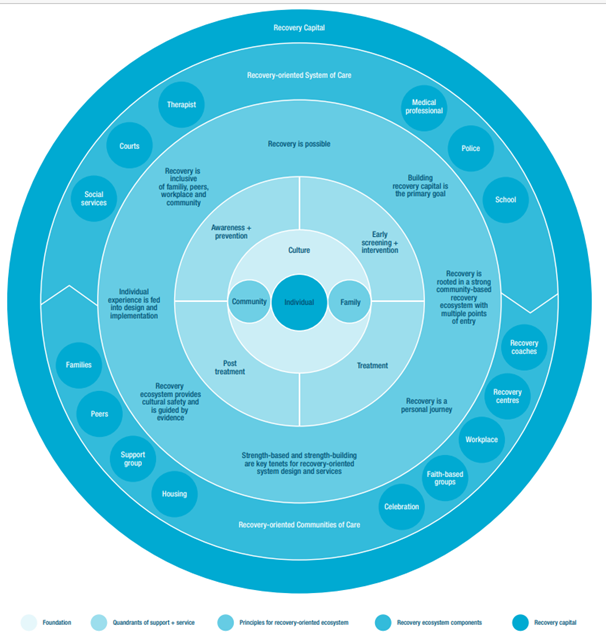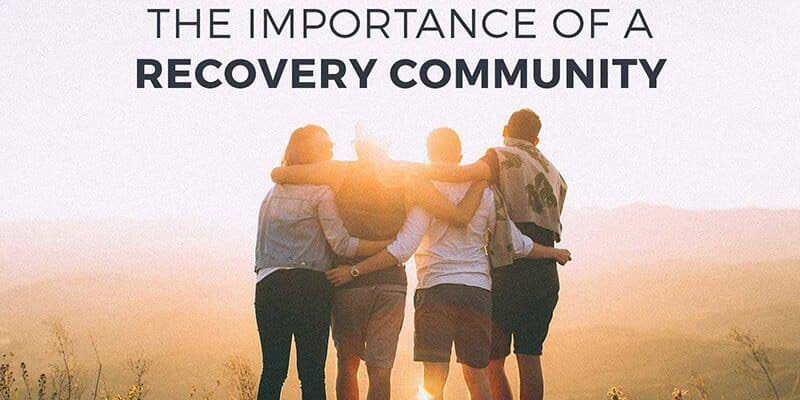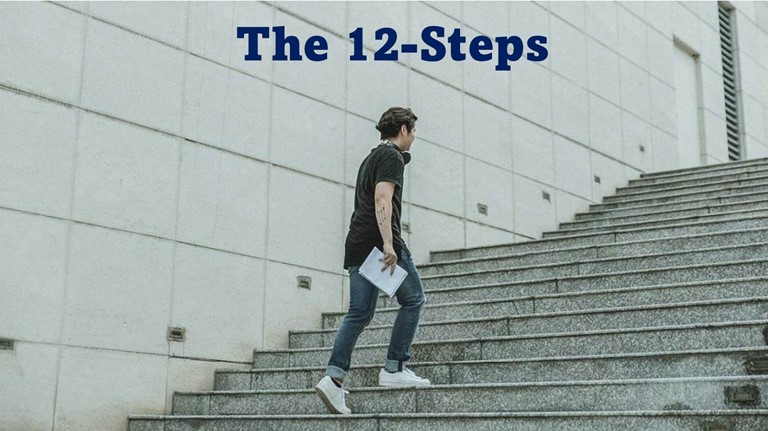As the Executive Director of the Red Deer Dream Centre, many topics were going through my mind regarding what I wanted to write about in my article. When everything is said and done, I decided to write my first article on the importance of a recovery community.
Whether you are homeless, a janitor, engineer, or chief executive officer, substance abuse does not discriminate, and for some people, it’s easier to stop than others. Some people can stop by simply saying that is it, no more, and that is it. Others need to go to treatment once and go on a recovery maintenance program. Some need to go to treatment several times, and then they are good to go. Some, unfortunately, are not able to stop and, in some cases, lose their life.
As I went through my journey, I had my battles in that I did not trust anyone. I thought everyone was against me. I thought I was schizophrenic because my mother had that illness. In short, I had an obsession of the mind, and an allergy in the body to alcohol, in particular.
Through my journey, I decided that I could do it myself, and that was that. Counsellors, psychologists, psychiatrists, and other medical professionals were there for the money, and not for helping me out. The people in non-profit organizations that put their hands out, I would slap it, because I didn’t believe what they had to offer.
I had my Ph.D. I was an academic All-Canadian, I worked for prestigious global organizations in senior leadership positions, and I thought I could do everything through my thinking. The fact is that I did that for 10 years and, when everything was said and done, I struggled immensely as a sober drunk.
I then was introduced to an organization, Alcoholics Anonymous, which I refuted many times before for the umptieth time, but I finally surrendered and accepted my reality that I could not do things myself. To this day, I attend meetings and sponsor several people, and I am grateful for that.
Earlier this year, I found myself reading a report that was developed by the Province of Alberta, titled “Toward an Alberta model of wellness: recommendations from the Alberta Mental Health and Addictions Advisory Council”. The beautiful thing about this report is that it took a community approach to recovery as illustrated by the following diagram that can be found on page 21 of the report.

The model is based on the concept of recovery capital and is illustrated in the farthermost circle in the above-mentioned diagram. Recovery capital is defined as the personal, interpersonal, and community resources that can be drawn upon to begin and sustain addiction recovery. The higher the recovery capital, the greater the likelihood that someone will begin and sustain addiction recovery. The lower the recovery capital, the lower the likelihood that someone will begin and sustain addiction recovery.
At the core of the model, the innermost circle, you have culture. Culture is comprised of the individual, family and community. It all starts with the individual, and to meet them where they are at with their family, and the various community resources that are available to them.
This takes us to the next circle, that is comprised of:
- Awareness and prevention,
- Early screening and intervention,
- Treatment, and
- Post treatment
Is the individual aware of their problem with substance abuse, and do they want to take preventive measures with respect to their substance abuse issue? If they are, then then they are screened and an intervention takes place to get community resources to assist them accordingly. One route is treatment, and assuming they go the treatment route, they will need to go through a short-term or long-term treatment program, depending on the treatment facility, to stabilize and get all the skills and tools to live a good life. Then comes the post-treatment, this is where the individual is transitioned into the community and, at various touch points, is supported by the various services that are in the community, as well as, the treatment centre.
The next circle is about the 8 recovery-oriented principles that highlighted with the individual in the treatment centre and with various community partners:
- Recovery is possible,
- Building recovery capital is the primary goal,
- Recovery is oriented as a strong community-based recovery ecosystem with multiple points of entry,
- Recovery is a personal journey,
- Strength-based and strength-building are key tenets for recovery-oriented system design and services,
- Recovery ecosystem provides cultural safety and is guided by evidence,
- Individual experience is fed into the design and implementation, and
- Recovery is inclusive of family, peers, workplace and community.
This leads us to the second largest circle that is comprised of the recovery-oriented system of care (ROSOC). ROSOC is comprised of following resources that can be accessed while in recovery and within the community, some of which include: housing, support groups, peers, families, social services, schools, medical professionals, therapists, and faith-based groups.
When everything is said and done, as the individual works through treatment and with the assistance of various community partners, their recovery capital will increase to the point where sustained recovery can be achieved once transitioned into the community.
The fact of the matter is that when I was struggling with substance abuse, my ego told me that I could do everything myself, and boy was I wrong. On December 13, 2023, I will be sober 20 years. I did not know this at the time, that I was accessing various community resources when I was struggling. This
increased my recovery capital and, over time, I managed to get my life on track without alcohol and drugs. I am a very blessed man that I work in an organization that will take this community-oriented approach to recovery, because it’s extremely difficult to do it on your own. We are here to support those struggling with substance abuse issues, and with the help of the community we are going to help them live a wonderful life, one of freedom from substance abuse.
Vincenzo Aliberti, Ph.D.
Executive Director
Red Deer Dream Centre
4614 50 Avenue
Red Deer Alberta T4N 3Z8
Vince.aliberti@rddc.ca



